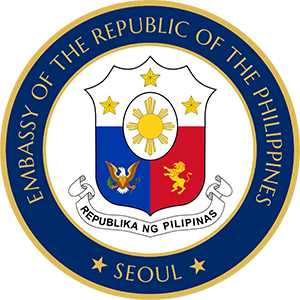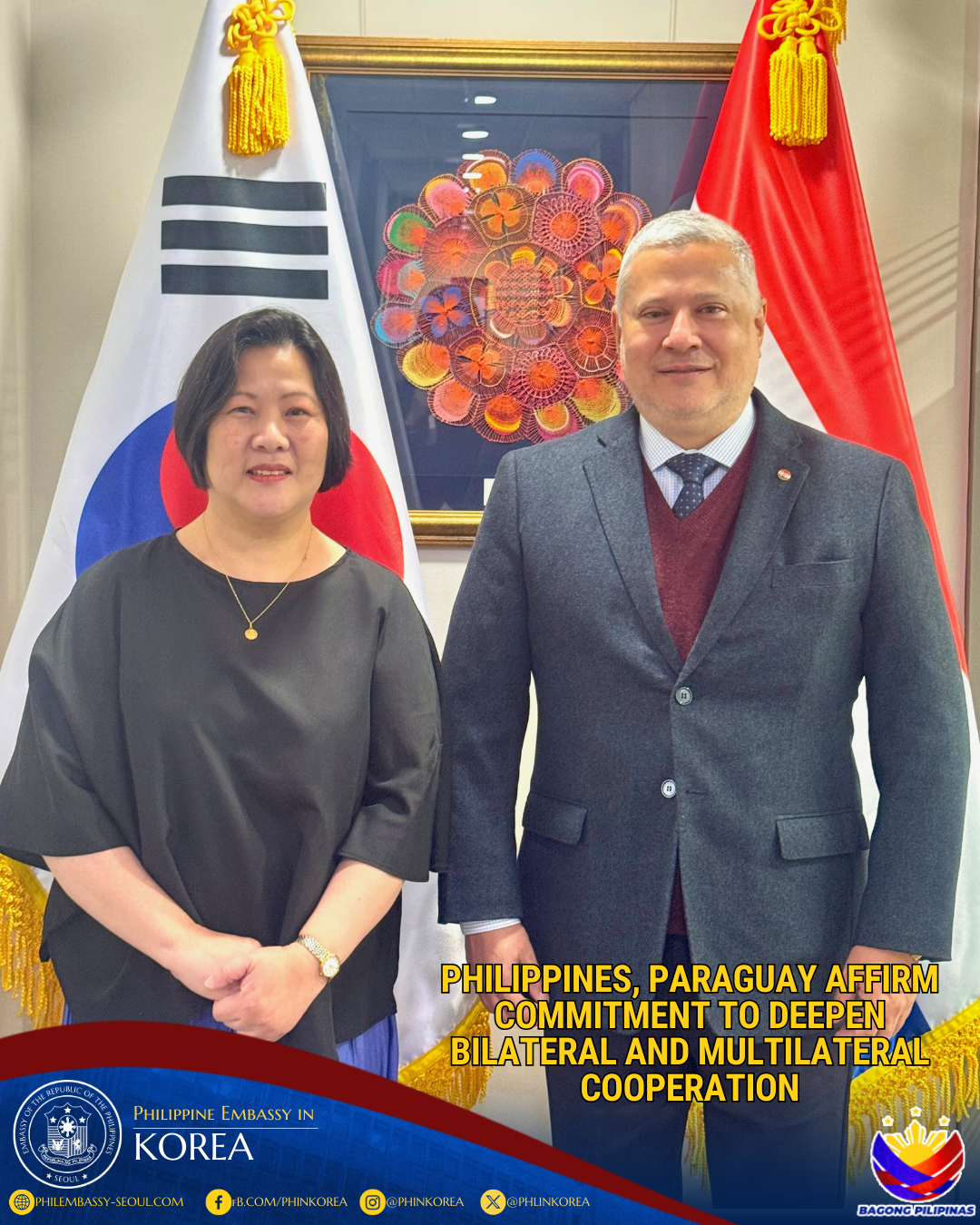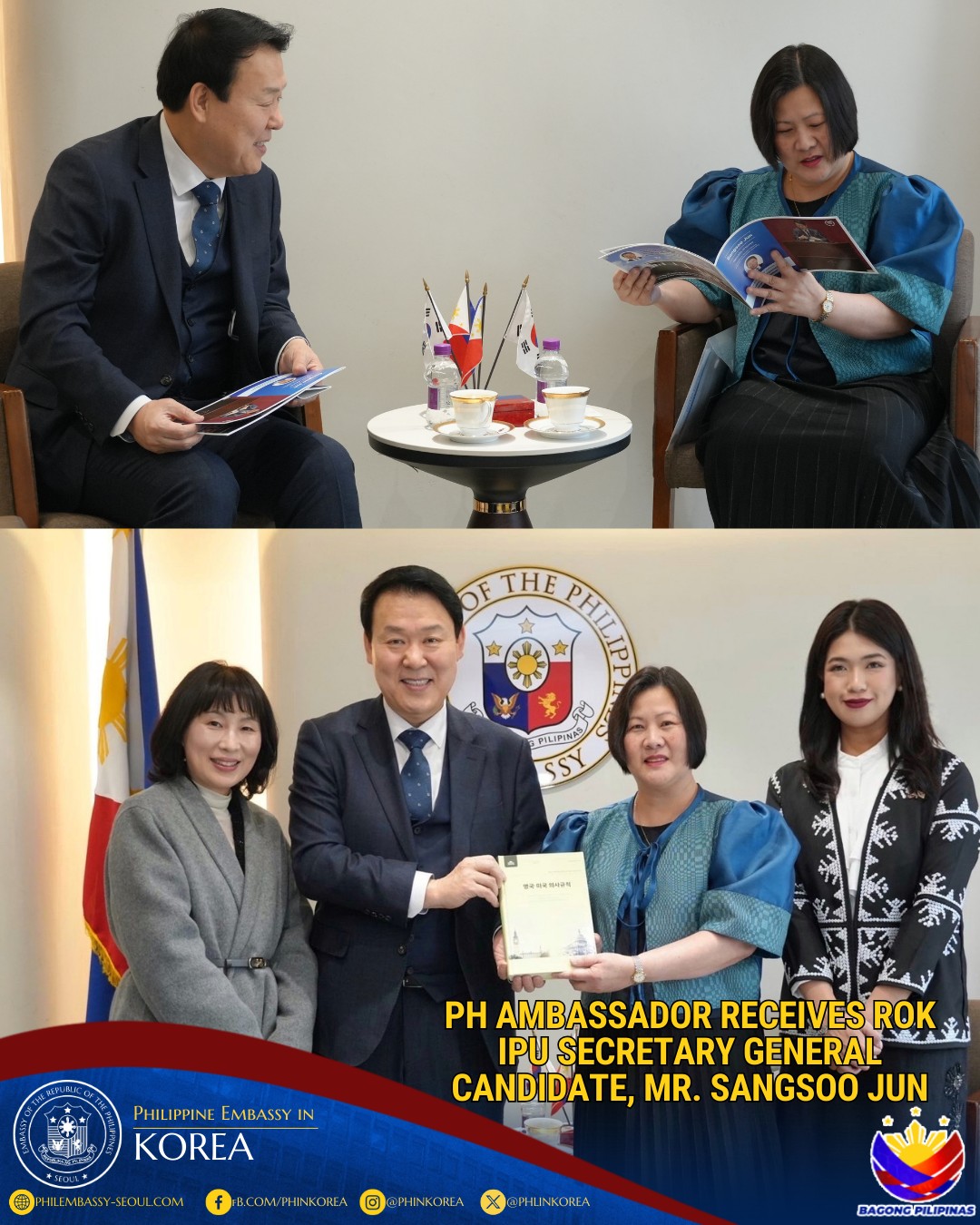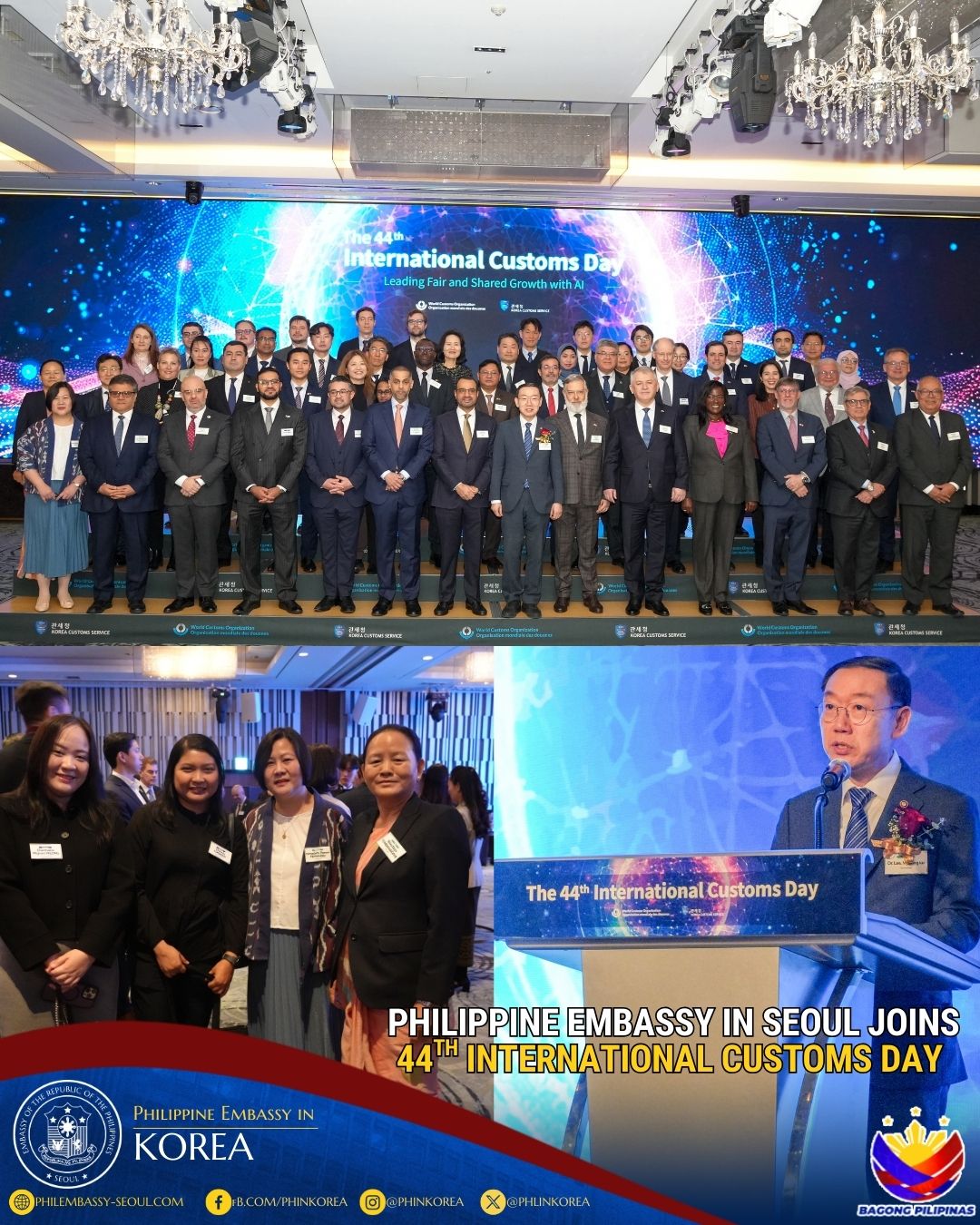Embassy’s Lecture Series in Seoul Highlights Coral Triangle
2 June 2008 – Philippine Ambassador to South Korea Luis T. Cruz reported to the Department that the Philippine Embassy in Seoul held a series of lectures in top Korean universities, promoting not only Philippine-Korean relations but also the biodiversity-rich Coral Triangle which the Philippines is part of.
Amb. Cruz delivered his lecture to a total of approximately 500 students in presentations held at the Korea University on 22 May, at the Sookmyung Women’s University on 27 May, and at the Ehwa Womans University on 31 May. Covering the Philippines, Malaysia, Indonesia, East Timor Papua New Guinea and the Solomon Islands, the Coral Triangle contains 75% of world’s coral reef species. Emphasizing its role as “The Amazon of the Seas,†Amb. Cruz explained that the 1.6-billion acre Coral Triangle absorbs harmful carbon compounds that contribute to global warming, making it the ocean counterpart of the land sink provided by the Amazon Forest. Amb. Cruz, however, pointed out that the Coral Triangle is in danger because of harmful practices such as destructive fishing; consumer demand for luxury products that deplete the coral supply; destruction of nesting grounds; and insensitive tourism. Amb. Cruz encouraged everyone to help raise awareness about the benefits offered and challenges faced by the area, which is still largely unpublicized. Amb. Cruz also focused on the evolution of Philippine-Korean relations, highlighting its development from military collaboration during the Korean War to a full-scale partnership today that encompasses security, political, economic, and socio-cultural issues. He also drummed up support for the 60th Anniversary of Philippine-Korean relations in 2009. At the Ehwa Womans University, where a mock UN assembly was organized for high school students, Amb. Cruz encouraged the participants to imbibe a global outlook. “For most people, it is important to look first into the satisfaction of our own needs—for example, food; shelter; school grades; and career path,†he said. “Beyond ourselves, we reach out to a greater circle, to a higher level of awareness of others—to family and friends, to colleagues and clients, to leaders and followers,†he added, illustrating that the circle continues to expand as individuals widen their viewpoints. “But for truly amazing individuals, the perspective surpasses mere national interests… Some of us have a keen awareness of inter-country dynamics, inter-regional issues, and international realities… In today’s globalizing world, we need more of these people [since] many of the issues we face concern not only one or two countries, but all of earth’s inhabitants,†he explained.


 January 28, 2026
January 28, 2026
 January 26, 2026
January 26, 2026
 January 29, 2026
January 29, 2026
